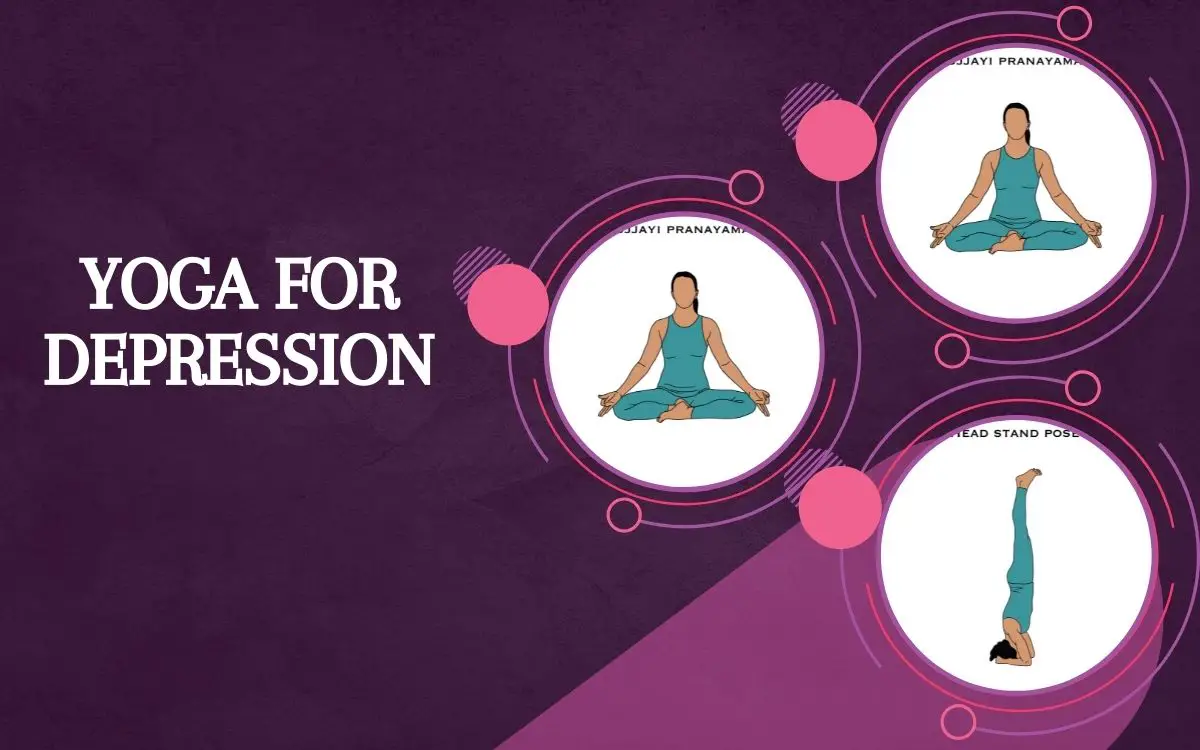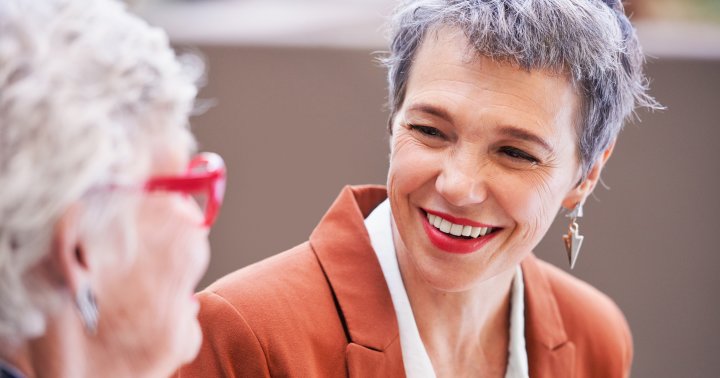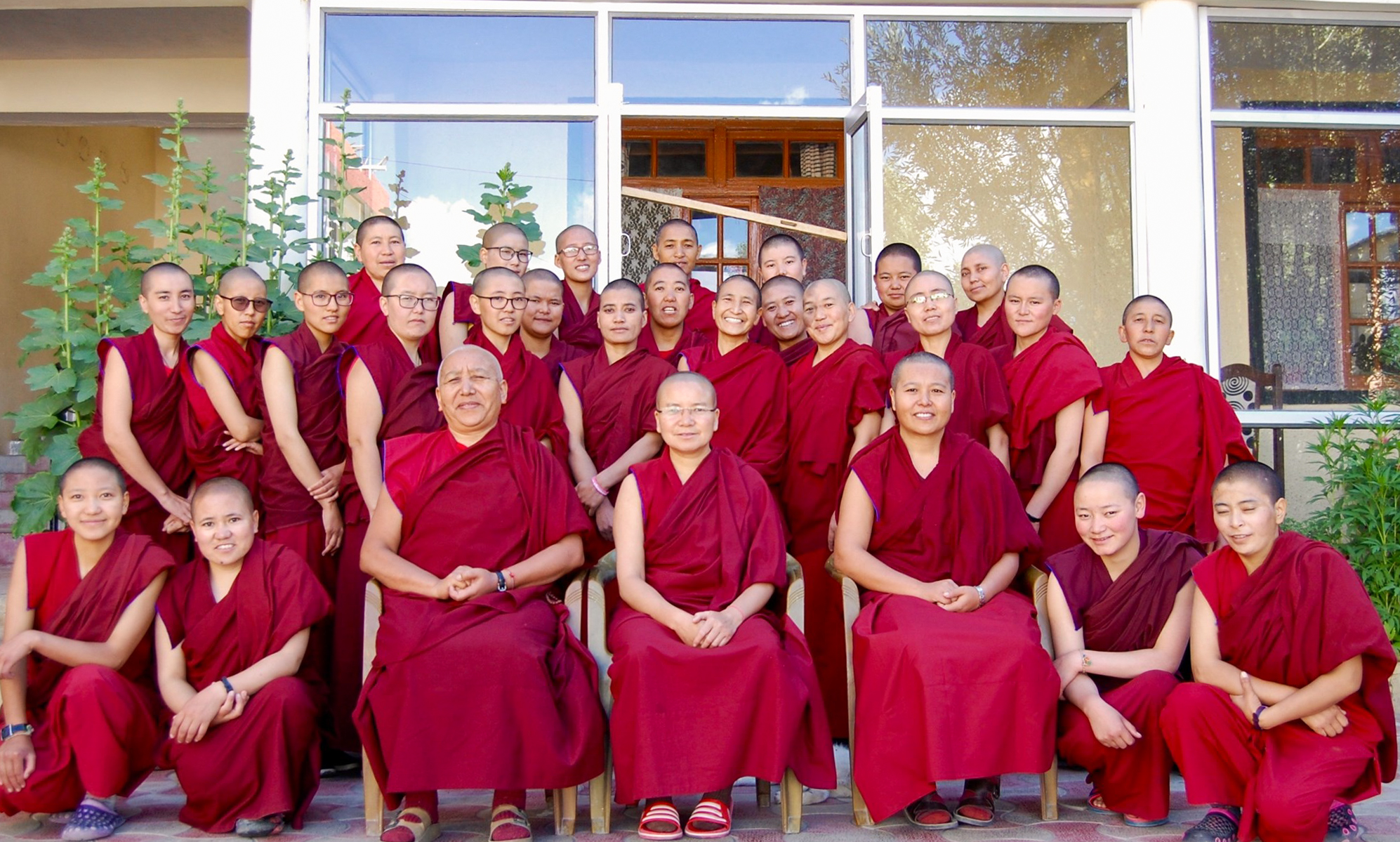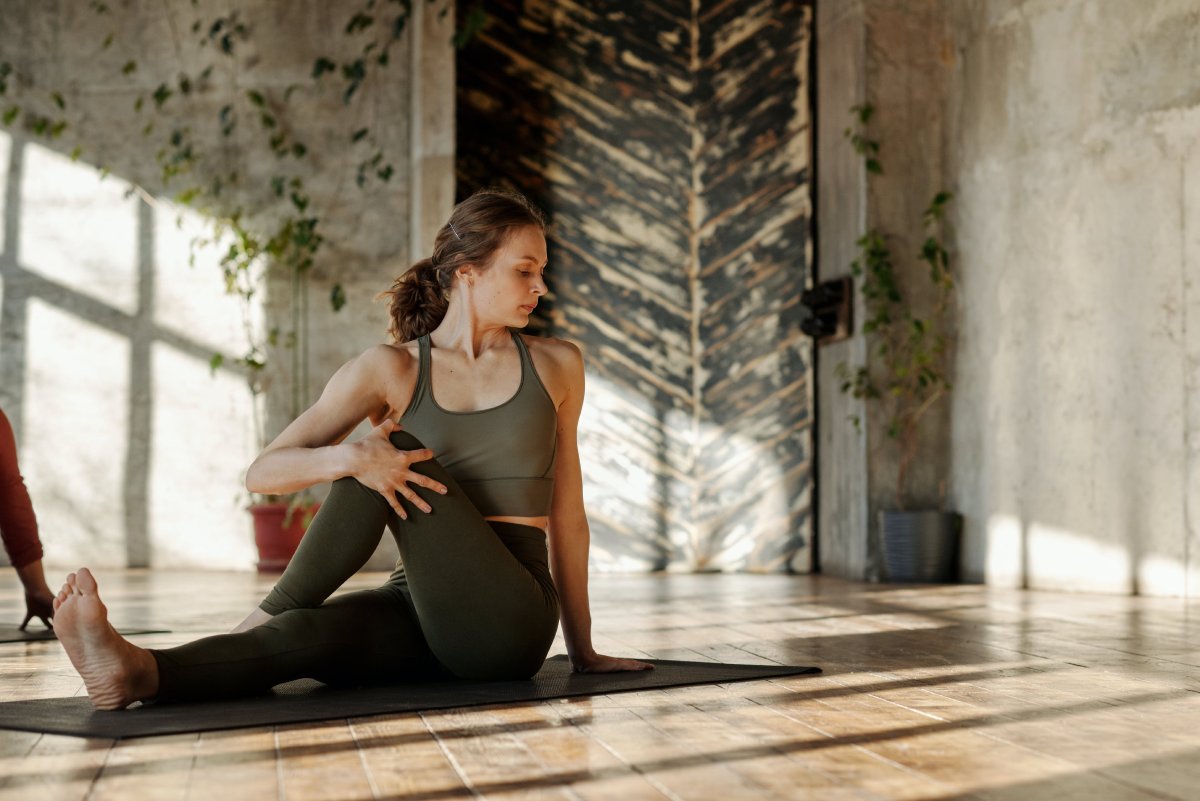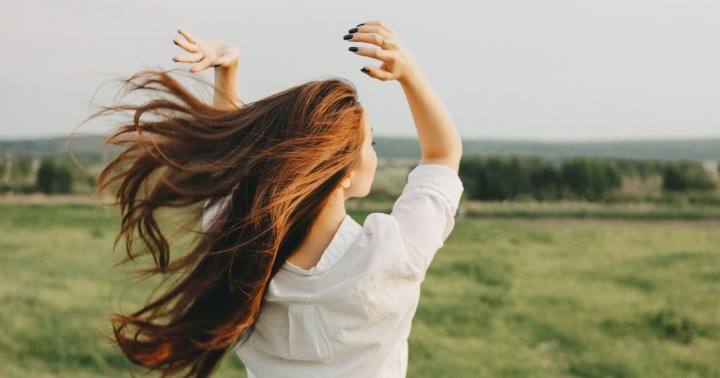Aural Pastoralist
Talking Western psychology, Buddhist recovery, and tenacious groundhogs with visionary American folk guitarist Joseph Allred The post Aural Pastoralist first appeared on Tricycle: The Buddhist Review. The post Aural Pastoralist appeared first on Tricycle: The Buddhist Review.
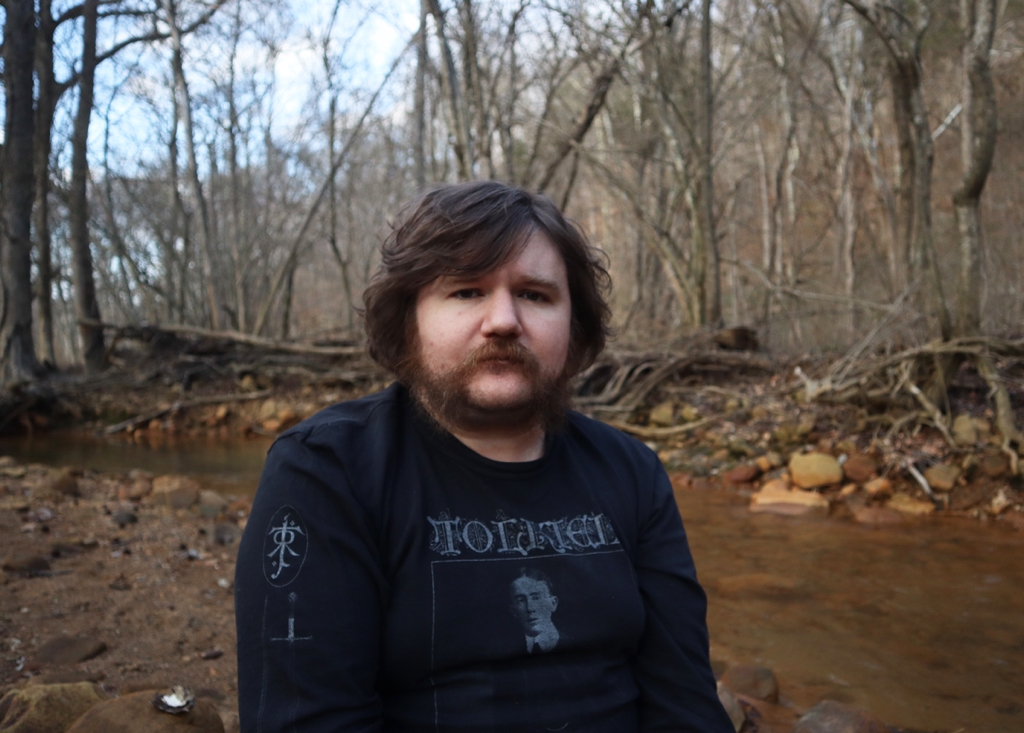
Since releasing their first recordings in 2012, Tennessee-based folk guitarist, composer, and singer Joseph Allred built up a massive catalog, around twenty-five to thirty albums deep. “I’ve lost track too,” they admit. Allred is what you’d call an “outsider artist”—self-taught and largely self-reliant, they’re operating outside of the traditional music industry, selling their albums through platforms like Bandcamp and playing concerts in local micro-venues.
Born and raised in the rural South, they play a strain of acoustic guitar music often dubbed “American Primitive,” first developed by musicians like John Fahey and Robbie Basho, who started writing complex arrangements for solo steel-string guitar in the 1960s and 1970s. This style of music is largely inspired by American country blues, bluegrass, and folk, but also deeply influenced by classical and traditional music from Europe, Africa, the Middle East, and India. Over the last few decades, it has turned into a subgenre of independent music with a small but dedicated fan base.
Allred originally started composing solo guitar music after a difficult period in their life that led them to discovering Buddhist mindfulness practices. With their distinctive take, they’re adding to the rich legacy of the American Primitive canon—a visual artist too, they also create most of their album cover artworks. Across Allred’s growing discography, the Buddhist references vary from the direct to the more subliminal—whether it takes the form of an album solely dedicated to the life and legacy of the late Thich Nhat Hanh or in the pastorally imagistic song titles that call to mind the haiku of Matsuo Basho. Tricycle contributing author Stephan Kunze caught up with Allred, speaking from his rural farmhouse near Crawford, Tennessee.
This interview has been edited for length and clarity.
How did you get into the style of music you’re playing today? I spent many years playing in metal and punk bands. We were part of the underground scene in Nashville. The last band I played in was kind of a psychedelic metal band. That broke up around 2007. For the first time since I started playing guitar I wasn’t in a band, so I got interested in what one person with an acoustic guitar could do. Around 2011, I got more serious about it. I started composing guitar music and making recordings.
What drew you into the metal and punk scene originally? I’m from rural Tennessee, so I grew up around this very conservative, authoritarian religious culture. You weren’t supposed to ask any questions, but I’ve always been kind of rebellious. I started to feel like an outsider, and metal music is something that attracts weird outsiders. The antireligious sentiment appealed to me as well, though it was mostly just tongue-in-cheek humor. I loved horror movies, too, for the same reasons. What appealed to me about punk were the politics and the fact that it wasn’t quite so masculine. Metal is very masculine, and I didn’t feel at home there. I remember one of the first openly queer people that I was ever aware of was Billie Joe Armstrong from Green Day.
Did you enjoy a musical upbringing at home? I grew up hearing hymns at church. My dad sang bass in the church choir. The first instrument I ever played was his guitar, even though it had a big neck, which wasn’t very good for a child to play on. My mom is not very musical. I got my first little acoustic guitar when I was 10, and two years later, I got one that was more serious. From that point on, I never considered putting the guitar down.
I assume that John Fahey and Robbie Basho were huge influences on you, Basho probably even more? Well, for a while I was trying to build on Robbie’s work, to the point that I wasn’t being authentic anymore. Fahey and Basho are two pretty distinct lineages of this American solo guitar music, and I’ve inherited both of those to some extent. At different points, I’ve wanted either to do something rooted in American traditional music, which is the Fahey thing, or something drawing from Indian, Iranian, and Arabic music, these musical traditions of improvisation within particular melodic modes, like the ragas or the maqams, and Robbie was obviously influenced by that. At times I felt that I needed to be doing something abstract and improvised, with more of a spiritual, mystical, ethereal orientation. And then at other times, I’ve been sitting on my porch, just writing a song about the leaves on a tree or a creek.
Some of your albums contain six or seven improvisations recorded in one night, and others consist of highly developed songs and compositions. That’s just the way it happens. Sometimes I work on compositions and wait until I’ve developed enough to feel like recording an album, and sometimes I feel a restlessness, an irritation that won’t go away unless I sit down and start recording. I like to receive whatever comes to me in whatever form. When Covid happened, in particular, I made a few albums with no regard at all for whether I could perform the music live—stuff with all kinds of overdubs and collaborations. But I think that in order to really understand where I’m coming from, especially with the solo acoustic stuff, the music needs to be experienced. So there have been times where I’ve felt like I should limit myself, and I didn’t, and maybe I regret not limiting myself more.
Would you mind sharing how Buddhism and mindfulness came into your life? I encountered Buddhism in college at first. I was taking classes in philosophy and religious studies, so I got an academic understanding of the different vehicles of Buddhism and its history. But around 2011, I went through a really difficult period in my life that I’m lucky to even have survived, and that was the first time that I’d really practiced Buddhist techniques. Western psychology has taken mindfulness meditation and breathing exercises out of the religious context and put them in a clinical therapeutic setting. At that point, I’d struggled with alcohol abuse for years. I realized I had all these undiagnosed problems with depression and anxiety. I’m still in the process of figuring all of that stuff out, but it turned out I am on the autism spectrum and also have schizoid personality disorder. In Buddhism, there’s this attempt to diagnose the fundamental underlying problem instead of running around treating symptoms. It’s taken me a very long time to do that, and Buddhist attitudes and techniques have helped me a lot. The most important thing for me was cultivating present awareness. We did that in the group therapy setting, as a way to deal with overwhelming emotions like anxiety or anger.
Did those Buddhist techniques inform your music as well, and if so, how? I did take mindfulness into other aspects of my life, including guitar playing, and that’s part of the reason I started to get disillusioned with playing electric guitar. With an electric guitar, you strike a string, the string vibrates, and it’s converted to an electrical signal, which goes out of the output jack through twenty feet of audio cable, and if you use pedals, it runs into all these transistors and resistors, through twenty more feet of cable, into an amp, gets passed through all this circuitry, and in the end a loudspeaker vibrates. If you don’t pay much attention, it seems like an immediate process, but if you do, you start to experience a disconnect. With an acoustic guitar, you hit a string and the guitar vibrates, and that causes vibrations in the air. That’s it. So I got much more interested in that intimacy and the fact that it’s so self-contained. Anyone who struggles with addiction knows what it’s like to feel out of control. I desperately needed some space where I had control, and I was able to create that space, with just this thing in my hands.
At times I felt that I needed to be doing something abstract and improvised, with more of a spiritual, mystical, ethereal orientation. And then at other times, I’ve been sitting on my porch, just writing a song about the leaves on a tree or a creek.
Did you become part of a group of Buddhist practitioners, a sect or a temple, or a sangha for daily meditation practice? I did, but just for a short period. I am incredibly grateful to have been able to spend a semester of school in India and Nepal. I actually spent three months living in a Burmese monastery. We got up at five o’clock every morning and meditated for an hour. Then we would have classes on Tibetan and Buddhist history, and then more meditation sessions. That’s the deepest I’ve gotten into it. I don’t have that discipline now, since I live alone and it’s difficult to do without the accountability that comes from being part of a community. I miss that. But it takes a huge commitment.
In 2016, you moved to Boston but recently came back to rural Tennessee. What did you miss? It just feels really nourishing to be back here. My great-grandparents built the house that I’m sitting in right now. It’s been here 115 years, the farm that I live on. This house needs some repairs, but at least I don’t have to pay rent to a landlord. Life in the city is expensive, and there’s so much stimulation—people, construction, trains and cars and honking horns. I needed to get away from all of that. Here I can go outside, walk out my backyard and there’s no cell phone service, nothing other than me, the trees, and some cattle. I can just sit on the ground and look at the dirt. In the city, nature is curated—there’s a little park space where you can go, but that’s not the same. Technology and urbanization deprive us of that experience. I don’t want to completely turn into a Luddite, but I do feel some confusion about how the kind of life out here and the kind of life in the city can coexist. It seems like one is expanding, while the other is shrinking. That really troubles me.
What effect did it have on your creativity and your work to move back? The music that I’ve been writing recently does sound more rural and Southern in a way, so the move did have its effect. Now I write songs about groundhogs. I imagine the groundhog and what its life is like, to have to run around and find food for their little hoglets, and try not to get shot. In Boston, there were no groundhogs, just turkeys—and they are a menace because they’re not afraid of anybody! I could have written about them, but it didn’t dawn on me as much, because the environment was so different. Here, I’ve been spending so much more time outside, sitting in the dirt, watching the groundhogs.

 Fransebas
Fransebas 







